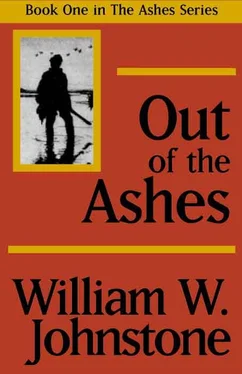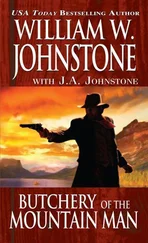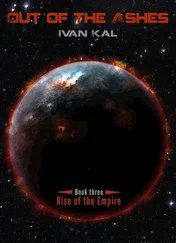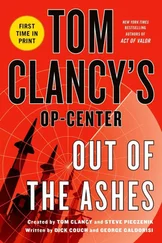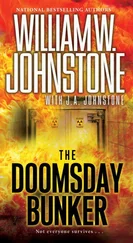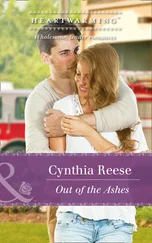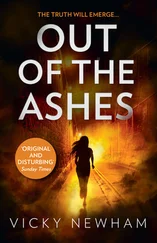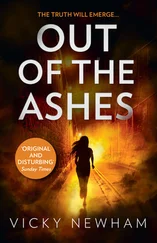“My name is Bridge Oliver. During the ride to the governor’s house, I’ll try to answer as many questions as possible and show you some points of interest.
“Coming up on your left is the first emergency telephone on this highway. You’ll find them every four miles on every major highway in the Tri-states. They are hooked directly to an army HQ in whatever district the motorist is in, and each phone is numbered. Pick up the phone, give that number to whoever answers, state the nature of the problem, and someone will be there promptly.”
“That isn’t anything new,” a reporter said. “It’s been tried before in other areas… before the bombings. Vandals usually ripped the phones out. Destroyed them.”
“Sir,” Bridge said, “in other states, punks and hoodlums were—and probably still are—pampered and petted by judges, psychologists, counselors, and petunia-picking social workers. Vandalism, in your society, under your laws, is accepted, more or less, as part of a young person’s growing up. We do not subscribe to that theory. As you have been told, and will be told a hundred times more during your stay here,”—until you get it through your goddamned thick skulls, Bridge thought—“crime, lawlessness, is not tolerated here. Our children are taught that it is wrong. They are taught it in the homes, in the schools, and in the churches.”
The same reporter who had asked about tattooing at birth, now asked: “What do you do when you catch them, shoot them?”
Barney looked out the window while Judith busied herself with a notebook.
Bridge held his temper in check. Ben had told his people to expect sarcasm and, in certain instances, open hostility from some members of the press.
“No, sir,” Bridge said quietly, “we don’t shoot them. I would like all of you to understand something. Some of you—maybe all of you—seem to be under the impression that we here in Tri-states are savages, or that Governor Raines is some sort of ruthless ogre. You’re wrong. We’re all very proud of what we’ve done here: jobs for everyone who wants to work; our medical system; elimination of poor living conditions; but we’re also somewhat of a law-and-order society. Not as you people know law and order, true, but we’re not monsters.
“We do a lot of things quite differently from what you people are accustomed to. But that’s all right, because it works for us.”
“That’s all very good, Mr. Oliver. And, I suppose, commendable, to your way of thinking. But I would still like to know what happens to the kids when they’re caught. Just for having a little fun.”
“Fun?” Bridge questioned. “Fun? Is destructive vandalism your idea of fun?”
“It certainly isn’t a criminal offense.”
“Isn’t it? What’s the difference between stealing a great deal of money or ripping out a piece of expensive equipment that might save someone’s life?”
The reporter shook his head. “I don’t intend to argue the question with you. It still doesn’t answer my question.”
Bridge sighed. “After they’ve all been warned, repeatedly, not to commit vandalism, and taught it in the schools, we attempt to find out why they would do so. Is it because of their home life? Are they abused? Do they have a mental problem? We try to find out and then correct the problem. But they will also work while we’re doing that: painting public buildings or working for the elderly, picking up litter—which, if you’ll observe, we don’t have much of—public-service work of some kind. But they’ll give us twenty dollars of their time for every dollar they destroyed.”
“That’s rather harsh, don’t you think?”
Bridge shrugged and tried not to smile. He knew their way of life, their philosophy, would not be understood by many of the younger members of the news media. About half of the newspeople now converging upon the Tri-states area were in their thirties, the products of the permissive ‘60s and ‘70s, which Bridge knew, only too well, was a time of poor discipline in schools, disregard for law and order, a downgrading of patriotism, morals, values. One could blame the time, but not wholly the individual.
“What about the police?” a woman asked. “I haven’t seen any.”
“We don’t have police,” Bridge said. “We have peace officers. And really, not many of them.” He smiled, attempting to put the people at ease. “Here,” he tried to explain, “the people control their lives. We have very few laws, and they are voted on by the people before they become laws. A fifty-one/forty-nine percent for and against won’t make it here. It’s got to be much clearer than that. That may be a majority in your system, but not here.
“Living here is very simple on the one hand, and very difficult—if not downright impossible—if you’re the type of person who likes to spread malicious gossip, if you’re lazy, if you like to browbeat others. If you’re inclined to cheat and lie… you won’t make it in this society.”
“What happens to them?”
“Well,”—Bridge grinned—“you start spreading lies about somebody in this society, you’re liable to get the shit beat out of you. It’s happened a few times.”
“And the law did what to the parties involved?”
“Nothing,” Bridge said flatly. “I don’t know of anyone, male or female, who doesn’t gossip; that’s human nature. Just don’t make it vicious lies.”
“I’m surprised there haven’t been any killings, if that’s the kind of laws you people live under. If you want to call it law, that is.”
“There’ve been a couple of shootings,” Bridge admitted. “But not in the past three or four years. We’re all pretty much of one mind in this area.”
“Who shot whom, and why?” Clayton questioned.
“One fellow was messin’ with another man’s wife. He kept messin’ with her even though, as witnesses pointed out, the woman told him, time after time, to leave her alone. She finally went to her husband and told him. The husband warned the man—once. The warning didn’t take. The husband called the man out one afternoon; told him he was going to beat the hell out of him. Romeo came out with a gun in his hand. Bad mistake. Husband killed him.”
The press waited. And waited. Finally Clayton blurted, “Well, what happened?”
“Nothing, really.” Bridge’s face was impassive. “There was a hearing, of course. The husband was turned loose; Romeo was buried.”
“Are you serious?”
“Perfectly. I told you all: this is not an easy place to live. But that’s only happened three… yes, three times since the Tri-states were organized. There is an old western saying, sir: man saddles his own horses, kills his own snakes. And if I have to explain that, you’d better turn this bus around and get the hell out of here.”
The bus driver chuckled.
The press corps absorbed that bit of western philosophy for a moment… in silence. Clayton broke the silence by clearing his throat and saying, “Let’s return to the people controlling their own lives, if we ever indeed left it. Elaborate on that, please, without the High Noon scenario, if possible, and I’m not sure you weren’t just putting us on about that.”
“I believe that Sergeant Roisseau told Mr. Barney Weston that this is a one-mistake state and he’d had his—right?”
Barney felt his face grow hot. “Mr. Oliver, maybe I was out of line, but I just got mauled and humiliated. Don’t you think that’s going a bit far?”
“Would you do it again?” Bridge asked.
“Absolutely not!”
Bridge laughed. “Well… you just answered your question.”
“Mr. Oliver?” Judith said. “Are you taking us on a preselected route? I’ve seen no shacks or poor-looking people. No crummy beer joints. No malnourished kids. Nothing to indicate poverty or unhappiness.”
Читать дальше
